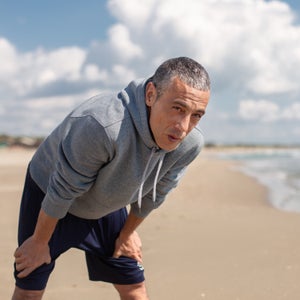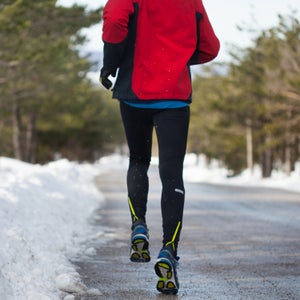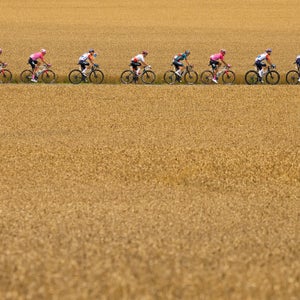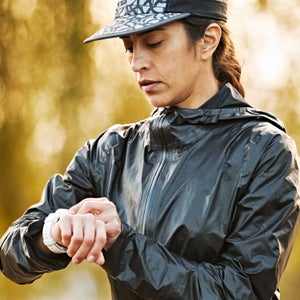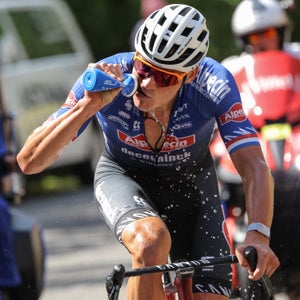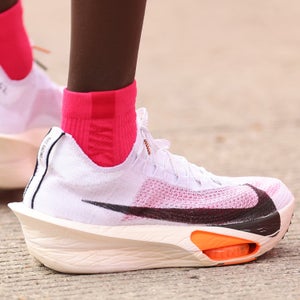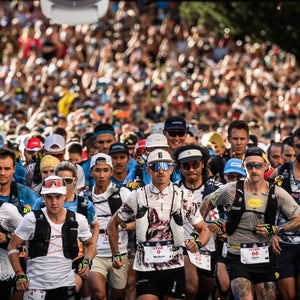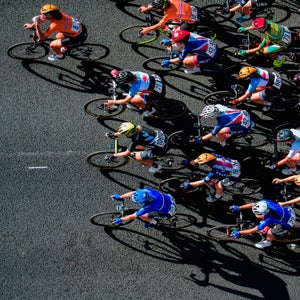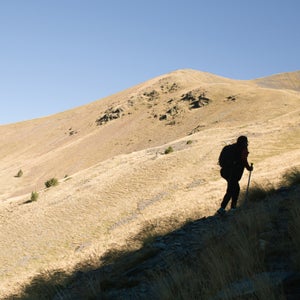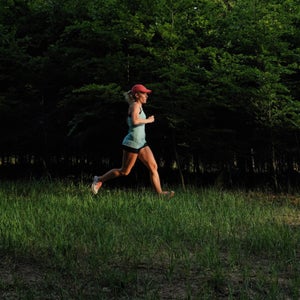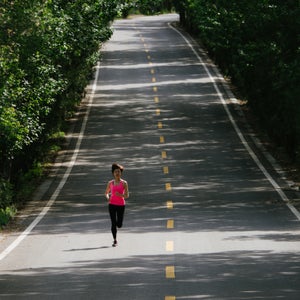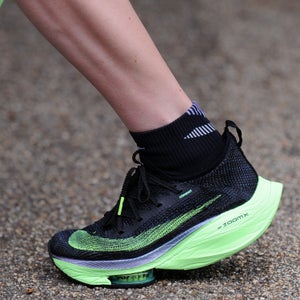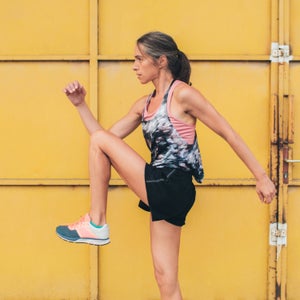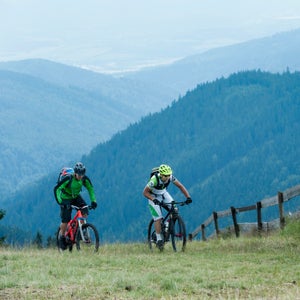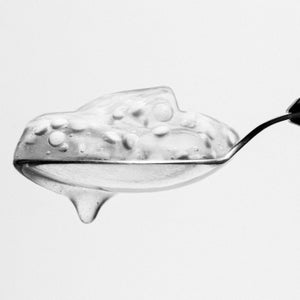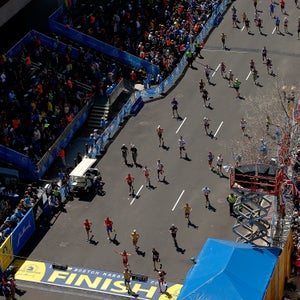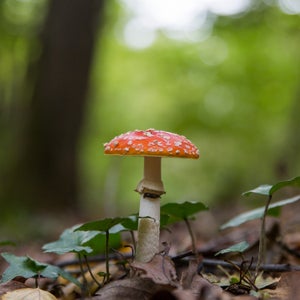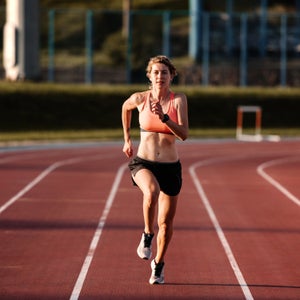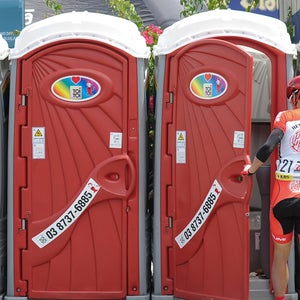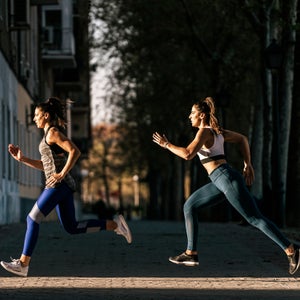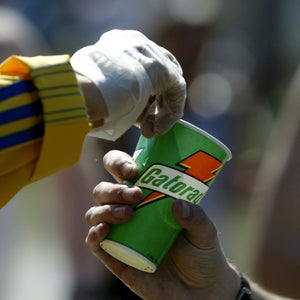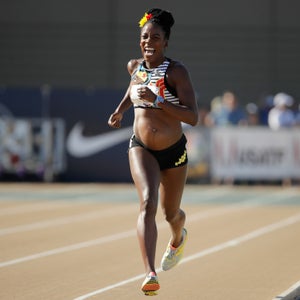

Alex Hutchinson
Find Me
Published
A new study blows up the conventional wisdom about maximum protein doses for athletes.
The fitter you get, the more likely you are to feel that you can’t get enough oxygen during hard exercise
Contrary to what scientists once thought, even superficial cooling is enough to interfere with muscle oxygen supply.
Not as soundly as you’d expect, actually
Short workouts can make you stronger, but longer workouts are better for building muscle, according to new research
Avalanche victims need to be located as quickly as possible. But a newly published case report shows that occasionally, someone beats the odds.
The benefits of training your mental skills are, by definition, all in your head. So how do we prove that it works?
The quest for adequate support can make running less efficient by forcing your breathing muscles to work harder, new research finds
Marijuana is still a banned substance for athletes, but new research is chipping away at the idea that it makes you faster
The logic is good and the anecdotes are common, but the evidence is shakier than expected, researchers find
There isn’t a ton of data on resistance training for women, so researchers pooled it to look for patterns
New research suggests exercise may boost the “love hormone,” the latest in a long line of brain-boosting molecules
The pursuit of performance in a bottle inherently undermines our attempts to get faster, stronger, and healthier, our Sweat Science columnist argues
Data from a charity ride before last summer's Tour shows some obvious differences and surprising similarities to data from the pros.
New research explores the minimum effective dose of resistance training and the health effects of overdoing it
InsideTracker’s massive database of more than 23,000 runners shows that more mileage is associated with better biomarkers
It turns out you can absorb more carbohydrates than sports nutritionists thought. But does it actually make you faster?
A selection of (mostly) new titles for fans of science, endurance, fitness, and adventure
Over the past century, “maximal oxygen uptake” has turned out to be a valuable marker of both endurance and health.
The guidelines for returning to training after giving birth are “vague and inconsistent.” That’s no surprise.
You won’t freeze your lungs exercising outdoors this winter, but there are reasons to be cautious about inhaling extremely cold air
Fancy new midsole materials like PEBA make you faster, but at the cost of durability
To ward off cognitive decline, a new analysis suggests that strength matters more than how much muscle you have
The new science of skill acquisition can help coaches and athletes get more out of their workouts
Scientists want to know why we don’t keep getting bigger and stronger forever
After two new marathon world records, it’s time to reevaluate why marathoners are getting faster and what comes next
Toss out the marathon prediction equations. Understanding what determines ultra performance takes a whole different approach.
All the digital training data in the world may not tell you whether your workout was any good
A rigorous new study finds small changes in heart rate and subjective feelings of recovery. Do they matter?
A new study of athletic career trajectories finds that early success is less meaningful than you’d think
Researchers assess the potential benefits—and downsides—of the hundreds of bioactive compounds in your morning brew
Tramadol has a long history of suspected abuse among cyclists, and now there’s enough data to put it on WADA’s banned list
When illness or injury forces you to take a complete break, researchers have some ideas on how to limit the fall-out
Sports scientists weigh in on the trends that will keep the PRs coming
Analyzing glucose data from endurance athletes offers new(ish) insights, with the potential of more to come
They don’t necessarily save energy, but a new study suggests they might save your legs
To optimize your health or supercharge your training, you sometimes need to look beyond the lab
There are both healthy and harmful ways to get away from it all, psychologists point out
A high-tech approach called metabolomics offers a new perspective on how your body bounces back from 26.2 miles
Records are falling and times are dropping. Is it the shoes, or something else?
The latest research suggests that muscle oxygen can detect exercise thresholds, with no blood required
Researchers present new findings on mental fatigue, mental training, and the importance of your surroundings
Scientists consider the latest spikes, individual variability, and the pros and cons of training in racing shoes
Scientists reconsider the assumption that it only helps strength and power athletes
Plyometrics can make you a more efficient runner, and it turns out they don’t need to be complicated or risky
Researchers look back on the lessons from 25 years of “live high, train low”
First there was altitude training. Then it was heat training. Now it’s… pollution training?
New data finds that endurance- or speed-oriented muscle fibers don’t determine how you respond to strength training
In-race data collected during the world championships sheds new light on how top endurance athletes avoid overheating
There’s plenty of hype about ways of boosting your respiratory system. Some—but not all—of it is real, according to a new review.
A new review weighs the evidence that strength and training adaptations vary across the phases of the menstrual cycle
Researchers use isotope tracers to accurately calculate calorie burn and other parameters during a grueling full-day ride
So-called “augmented feedback” can offer both information and motivation. A new study tries to separate the effects.
While trying to qualify for an English Channel crossing, swimmers swallowed ingestible thermometers. They got really cold.
Age may be just a number—but so is your weekly mileage
Has Maurten finally figured out how to harness the power of baking soda without paying the gastrointestinal price?
Double threshold days and lactate meters have propelled Jakob Ingebrigtsen and others to the top. Should the rest of us follow suit?
Researchers test the assumption that top athletes are more sensitive to internal cues, with surprising results
A new study tests the idea that, with the right building blocks, connective tissue can repair itself after all
A big-data analysis of Strava training logs estimates the slowdown for marathoners who miss a week or more
A new model breaks down the ability to fight through adversity into its constituent parts
Army researchers assess the evidence on what makes you stronger, and speculate about new approaches that might work even better
A head-to-head lab showdown finds that power and efficiency depend on your preferred running surface
Cautionary tales from the official journal of the Wilderness Medical Society
Moving from long to short efforts during a workout maximizes the training stimulus
A selection of recent titles to keep you warm by the fire
The downside of veggies, the upside of emptying your colon, and more
New research finds that, all else being equal, runners don’t have more gastrointestinal problems than cyclists
New research explores the differences between active and inactive twins, and why such pairs are so rare
Replacing lost salt is a pillar of sports nutrition, but new research suggests more isn’t always better
Researchers in Japan try to figure out which miles matter most for long-distance runners
Elite running coaches weigh in on what it means to be talented and how they predict who will run fastest
A pair of experiments find that mice choose to run less after taking antibiotics, even though their endurance is unchanged
New data shows that, unlike a car, you can’t perform well with a half-full fuel tank
New data outlines how much they run, how long it takes to resume training after giving birth, and how well they return to competition
The unending search for a competitive edge in sports has a cost. It’s called the Red Queen effect.
Runners make bigger improvements following a flexible workout schedule rather than sticking with a predetermined one
A new twist in the old debate about caffeine's performance-enhancing powers suggests it helps maintain oxygen levels in the blood
Women are said to be 10 to 12 percent slower than men across distances, but a new analysis finds narrower gaps for sprinters
There’s encouraging new evidence on artery stiffening and the risks of too much exercise

